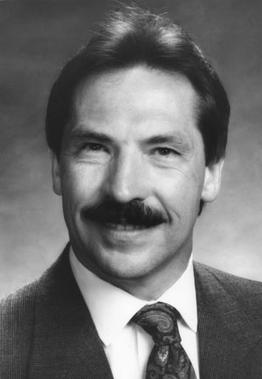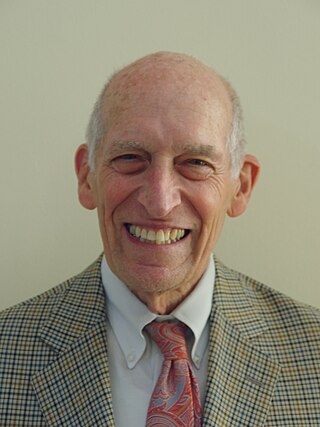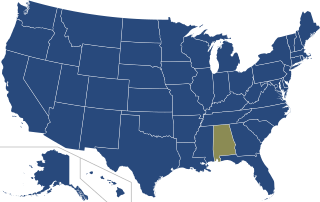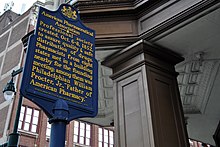
A pharmacist, also known as a chemist in Commonwealth English, is a healthcare professional who is knowledgeable about preparation, mechanism of action, clinical usage and legislation of medications in order to dispense them safely to the public and to provide consultancy services. A pharmacist also often serves as a primary care provider in the community and offers services, such as health screenings and immunizations.

University of the Sciences in Philadelphia, previously Philadelphia College of Pharmacy and Science (PCPS), was a private university in Philadelphia, Pennsylvania. On June 1, 2022, it officially merged into Saint Joseph's University.

Pharmacy is the science and practice of discovering, producing, preparing, dispensing, reviewing and monitoring medications, aiming to ensure the safe, effective, and affordable use of medicines. It is a miscellaneous science as it links health sciences with pharmaceutical sciences and natural sciences. The professional practice is becoming more clinically oriented as most of the drugs are now manufactured by pharmaceutical industries. Based on the setting, pharmacy practice is either classified as community or institutional pharmacy. Providing direct patient care in the community of institutional pharmacies is considered clinical pharmacy.

R. Tim Webster, SCD was a founder and long-time executive director of the American Society of Consultant Pharmacists (ASCP). He was born October 9, 1946, in Martins Ferry, Ohio and lived in St. Clairsville, Ohio until he graduated from high school. He received his degree in pharmacy from Ohio State University (OSU) in 1969 and then dedicated his entire career to promoting quality pharmaceutical care to the elderly. Prior to his 27-year tenure as executive director of the ASCP, he was involved in regulatory affairs relating to long-term care in both the public and private sector. He died of cancer on July 6, 2003.

Clinical pharmacy is the branch of pharmacy in which clinical pharmacists provide direct patient care that optimizes the use of medication and promotes health, wellness, and disease prevention. Clinical pharmacists care for patients in all health care settings but the clinical pharmacy movement initially began inside hospitals and clinics. Clinical pharmacists often work in collaboration with physicians, physician assistants, nurse practitioners, and other healthcare professionals. Clinical pharmacists can enter into a formal collaborative practice agreement with another healthcare provider, generally one or more physicians, that allows pharmacists to prescribe medications and order laboratory tests.
Pharmacy residency is education a pharmacist can pursue beyond the degree required for licensing as a pharmacist. A pharmacy residency program allows for the implementation of skill set and knowledge acquired in pharmacy school through interaction with the public either in a hospital setting or community practice. The program is done over a span of about 2yrs after graduation from pharmacy school and licensure as a pharmacist. Pharmacy residency helps improve the resume of a pharmacist so as to increase chances of obtaining employment outside community practice. A 2022 review suggested that there is sufficient evidence that residency develops key competencies for junior pharmacists.

The Campbell University College of Pharmacy & Health Sciences is an American pharmacy school founded in 1985 by Dean Ronald Maddox and located in Buies Creek, North Carolina. The College is one of seven schools that compose Campbell University. In 2009, the school's name was changed to Campbell University College of Pharmacy and Health Sciences.
College of Pharmacy is part of the University of Arizona, a public university in Tucson, Arizona, United States. It is the only pharmacy school at a public Arizona university and one of four health professions colleges at the Arizona Health Sciences Center campus. The college is accredited by the Accreditation Council for Pharmacy Education.
Pharmacy in China involves the activities engaged in the preparation, standardization and dispensing of drugs, and its scope includes the cultivation of plants that are used as drugs, the synthesis of chemical compounds of medicinal value, and the analysis of medicinal agents. Pharmacists in China are responsible for the preparation of the dosage forms of drugs, such as tablets, capsules, and sterile solutions for injection. They compound physicians', dentists', and veterinarians' prescriptions for drugs. Pharmacological activities are also closely related to pharmacy in China.
Pharmaceutical care is a pharmacy practice model developed in the 1990s that describes patient-centered medication management services performed by pharmacists.
UIC Retzky College of Pharmacy at the University of Illinois Chicago is one of the oldest pharmacy schools in the US and oldest unit of the University of Illinois system.

The history of pharmacy in the United States is the story of a melting pot of new pharmaceutical ideas and innovations drawn from advancements that Europeans shared, Native American medicine and newly discovered medicinal plants in the New World. American pharmacy grew from this fertile mixture, and has impacted U.S. history, and the global course of pharmacy.
The Canadian Pharmacists Association (CPhA), previously known as the Canadian Pharmaceutical Association, is an organization that serves as the professional association of Canadian pharmacists and pharmacy students. It was founded in 1907 in Toronto, Ontario. In 2014, CPhA adopted a new governance and membership model, most provincial pharmacy advocacy associations (PPAs) and select national pharmacist associations (NPAs) have become Organizational Members of CPhA. Their individual pharmacist and pharmacy student members are now CPhA Associates. The CPhA Board of Directors is made up of representatives appointed by each Organizational Member. The Board of Directors is responsible for setting the broad direction of the association.
AMCP is a professional organization representing the interests of pharmacists who practice in managed care settings. It publishes the Journal of Managed Care & Specialty Pharmacy.

Leslie 'Les' Zachary Benet is an influential pharmaceutical scientist heading the UCSF's Benet Lab at the Department of Bioengineering and Therapeutic Sciences and recipient of the Remington Medal for distinguished service to American pharmacy.

A collaborative practice agreement (CPA) is a legal document in the United States that establishes a legal relationship between clinical pharmacists and collaborating physicians that allows for pharmacists to participate in collaborative drug therapy management (CDTM).

The Joint Commission of Pharmacy Practitioners (JCPP) is the largest professional delegation representing the interests of pharmacists within the United States. JCPP represents 13 professional associations in the field of pharmacy, developing consensus policy directives for the profession. It is well known for the 2014 development of "The Pharmacists’ Patient Care Process," which provides broad, consensus guidelines for how clinical pharmacists should practice.
Mary Munson Runge was the first female, the first African American, and the first employee community pharmacist to be elected president of the American Pharmacists Association (APhA).
Women have served widely as pharmacists. However, as with women in many jobs, women in pharmacy have been restricted. For example, only in 1964 was the American Civil Rights Act of 1964 enacted, which outlawed refusing to hire women because of their sex including though not limited to in the profession of pharmacist. Even today, not all countries ensure equal employment opportunities for women.
The Bowl of Hygeia Award is an award given by state, provincial, and national pharmacist associations in the United States and Canada to recognize living pharmacists who "possess outstanding records of civic leadership in their communities," while "[encouraging] pharmacists to take active roles in their communities." It is named from the Bowl of Hygieia.












